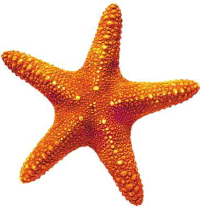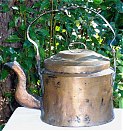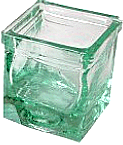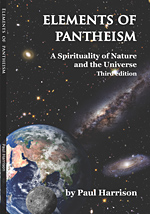
You must be the change you wish to see in the world.
Mahatma Gandhi
Make a difference to the planet – here and now
This page lists practical ways of changing the way you impact nature and your fellow creatures.
We aim to provide links to guide your choices or to find programs and suppliers, where possible near where you live.
Jump to Actions: Audit your lifestyle – Check your area – Offset pollution – Green energy – Transport – Appliances – Building – Food – Gardening – Workplace – Get Action Alerts
Planet Earth and all her inhabitants are showing signs of severe stress from human numbers and ways of life. The task of halting and restoring the damage seems enormous.
And yet, what happens to the environment is the sum of all our individual choices and actions.
You don’t have to wait till the entire body politic changes direction. You don’t have to wait till the majority agrees with you. You know that you can change your own choices. You can make a difference now.
Changing your lifestyle so you live in closer harmony with the present and future health of the planet is a big step. Sometimes it may cost more – sometimes less.
Making the change will lift a weight off your mind. Not making it means that you remain part of the problem to be solved.
Every move in the right direction will make a difference. But if you start with the big things you will make a bigger difference. Go solar, switch to renewable energy, walk and cycle more, get an electric car or plugin hybrid, eat lower on the food chain. Consume less. waste less, reuse and recycle more. When you travel by air,
Show and tell others what you are doing and multiply the effect of what you do. Gradually the whole momentum will shift direction till one day we will find ourselves once more as good citizens of the earth.
Paul Harrison World Pantheist Movement President, United Nations Environment Programme Global 500 laureate
Click for charity
These are the most productive and well-managed links we know of. By clicking once a day, you can help both people and the environment in small but meaningful ways. When you click you are shown small ads from sponsors whose checks pay the frontline charities to save land, feed the hungry and so on.
![]() The Hungersite: 1.1 cups food
The Hungersite: 1.1 cups food
![]() Ecology Fund: 87 sq ft habitat; make sure to first register and join the WPM group
Ecology Fund: 87 sq ft habitat; make sure to first register and join the WPM group
![]() Rainforestsite: 11 sq ft forest
Rainforestsite: 11 sq ft forest
![]() Animal Rescue: 0.6 bowls food
Animal Rescue: 0.6 bowls food
 Something is better than nothing Something is better than nothing
Edward Everett Hale |
The Star Thrower
A young man was walking along a beach. The tide was on its way out, and the beach, for as far as he could see, was covered in starfish. Ahead he saw a woman, picking up starfish and throwing them into the ocean one by one. Adapted from Loren Eisley |
Audit your lifestyle
 Wealthy countries in particular are consuming resources at an unsustainable rate; the US has under 5% of the world’s population and emits pump nearly 16% of the greenhouse gases, equivalent to 22 tons of carbon dioxide per person. Many developed countries have similar per capita rates, and their residents have a disproportionate opportunity to reduce this impact. How big is your Ecological Footprint?
Wealthy countries in particular are consuming resources at an unsustainable rate; the US has under 5% of the world’s population and emits pump nearly 16% of the greenhouse gases, equivalent to 22 tons of carbon dioxide per person. Many developed countries have similar per capita rates, and their residents have a disproportionate opportunity to reduce this impact. How big is your Ecological Footprint?
Unsustainable lifestyles are not just bade for the environment; they can increase your risk of major diseases. You can achieve a healthier weight (check your BMI) and increase your life expectancy by eating healthier, less environmentally-burdensome foods and exercising more – a more active lifestyle can make you less reliant on cars.
Check your area
 Of course, a large part of pollution is not due to your personal activity but to that of larger entities. For your health, and to keep people accountable, you can find out if you are living near a toxic waste site, check your local air quality, and pinpoint your local polluters.
Of course, a large part of pollution is not due to your personal activity but to that of larger entities. For your health, and to keep people accountable, you can find out if you are living near a toxic waste site, check your local air quality, and pinpoint your local polluters.
- Get an overview for your postal code from the Environmental Protection Agency.
- Focus on pollution data with the Pollution Report Scorecard.
Offset your pollution – Go Climate Neutral
 We can offset the impact of carbon dioxide we cause to be emitted, by planting trees or paying for trees to be planted or protected. A typical growing tree can absorb a third of a ton of CO2 per year. A typical US adult would need to plant 80 or more trees per year. How about you?
We can offset the impact of carbon dioxide we cause to be emitted, by planting trees or paying for trees to be planted or protected. A typical growing tree can absorb a third of a ton of CO2 per year. A typical US adult would need to plant 80 or more trees per year. How about you?
Trees have many other benefits: beauty, shade, improvement of local climate, increased water infiltration, lower soil erosion, protectiion of biodiversity. Here are 29 reasons to plant trees.
One hectare (2.5 acres) of rainforest may contain 700 types of tree and 1500 of plants. A single tree in Peru housed 43 different species of ant. [Rainforest Facts]
 TIPS:
TIPS:
- Order trees native to your soil and climate.
- Plant at the right time and place.
- Plant at least one tree every year. Plant a tree in memory of anyone who dies. Plant trees on National Arbor Day. Plant fruit and nut trees for free food.
- Sponsor tree planting ($1 per tree!), forest restoration, or preservation of threatened ecosystems.
Green up your energy use
 Reducing our use of fossil fuels is the major priority. One approach is to reduce our total energy use (20 Things You Can Do to Conserve Energy) through efficient products (see below) and good practice.
Reducing our use of fossil fuels is the major priority. One approach is to reduce our total energy use (20 Things You Can Do to Conserve Energy) through efficient products (see below) and good practice.
Another is to increase our use of renewable energies. Both efforts combined will improve our air quality, slow global warming, and reduce our dependence on Middle Eastern oil.
TIP: Checkout subsidies available from your state, city or utility for energy-efficient products, and home-generated solar and wind power.
- Energy Star site
- Green Power Network
- Find a renewable Energy Supplier
- Buy Green Power certificates
- Green-E – find certified renewable electricity (click the home or business symbol)
Green travel and transport
 The average American drives about 8,500 miles per year, the typical car about 17,000 miles. While average fuel economy standards have been improving in most of the world, in the USA they fell from 26.2 mpg in 1987 to 24.4 mpg in 2001, largely due to the spread of SUVs. Choosing the most fuel-efficient vehicles in a class can save the owner at least $1,500 in fuel costs. You can also green your travels and eco-tour. Own a hotel? Get your guests to re-use towels and sheets.
The average American drives about 8,500 miles per year, the typical car about 17,000 miles. While average fuel economy standards have been improving in most of the world, in the USA they fell from 26.2 mpg in 1987 to 24.4 mpg in 2001, largely due to the spread of SUVs. Choosing the most fuel-efficient vehicles in a class can save the owner at least $1,500 in fuel costs. You can also green your travels and eco-tour. Own a hotel? Get your guests to re-use towels and sheets.
EPA Fuel-economy data by year
Green Hotel cards
Control wasteful pamperings
Ecotourism
Get the most out of your appliances
 Energy Star certified products, in over 40 categories from dishwashers to air conditioning, use less energy and water, save money, and help protect the environment. Last year alone, Americans, with the help of Energy Star, saved $8 billion in utility bills and enough energy to power 20 million homes – and avoided greenhouse gas emissions equivalent to those from 18 million cars.
Energy Star certified products, in over 40 categories from dishwashers to air conditioning, use less energy and water, save money, and help protect the environment. Last year alone, Americans, with the help of Energy Star, saved $8 billion in utility bills and enough energy to power 20 million homes – and avoided greenhouse gas emissions equivalent to those from 18 million cars.
Energy Star Qualified Products
Find your nearest supplier
Energy efficiency resources
Free yourself from your stuff
We don’t own our possessions – often they own us. We are “stuffocating” under an avalanche of products and models. We buy far more than we need, wasting resources and adding to pollution. Every year each American throws away 1670 lbs of garbage – ten times our average weight, which is also ballooning as we eat more and exercise less.
We need to practice the “3Rs” – reduce, re-use and recycle. In that order. Reducing our consumption has the greatest impact. Re-using things, or giving them to others to re-use, is better than putting them in the recycling bin. Recycling must be done carefully. Finally, waste disposal must ensure that toxic products are properly disposed of.
We can also try to ensure that the things we do buy are produced with least environmental damage over their lifecycle.
By simplifying we can usually improve the quality of our lives physically and spiritually.
Books:
The Circle of Simplicity – Cecile Andrews
Voluntary Simplicity – Duane Elgin
Reduce
Simple Living
Seeds Of Simplicity
Simplicity Circles: find one near you
Re-use
How to donate a computer
Non-profit computer recyclers
Recycle your mobile phone
Recycle your phone and help victims of domestic violence
Recycle
Find a recycling center near you
Shopping
Responsible Shopper – company social/environment rating
Find Green Products/Businesses
Green your garden
A typical US yard size is about 13,000 sq ft. Yet we manage this land badly, growing alien flowers and water-hungry lawns, killing or excluding “pests” and “weeds” – usually the native species of our area. The least we can do is make our gardens hospitable to native plants and animals.
The National Wildlife Federation runs an excellent advice and certification scheme. From the Natural Resources Conservation Service you can get support and up to 75 percent cost-share to create or improve wildlife habitat.
Backyard Wildlife Habitat
Nature-oriented gardening
Wildlife Habitat Incentives Program
Green Golfing
Eat green
Eat lower on the food chain. One pound of grain eaten by humans is one pound of grain. Meats require far more grain and other inputs – 1 lb of feedlot beef requires 10lb of grain to produce. 1 lb of pork needs 5lb of grain,
1lb pound of chicken needs 2-3lb of grain.
Buy local. Foods are shipped across increasing distances as the world globalizes. Out-of-season flowers and vegetables are flown from the southern hemisphere to the northern. One study in Iowa found that typical supermarket produce travelled almost 1500 hundred miles – against only 56 miles for local produce on farmers’ markets. Buying local reduces pollution, and stimulates employment in your area.
Eat organic. Organic produce is grown or reared naturally without chemicals, hormones or antibiotics, with benefits for nutrition, soil health, animal welfare and wildlife diversity.
Eat humanely. If you eat meat and dairy products, choose ones that have been reared organically, huma nely, and in ways that allow animals’ natural instincts to be satisfied.
nely, and in ways that allow animals’ natural instincts to be satisfied.
Eat healthy. What you eat affects your own body as well as the environment.
Find good food near you: Farms & farmers’ markets
Community-supported agriculture
Sustainable seafoods – An overview from Whole Foods
Build a better home (or adapt your current one)
Building a home probably has a greater environmental impact than any other action of a person’s life. It is an opportunity to change the rules by which you and future generations live. Some homes such as  Earthships are almost self-sufficient in water and energy. Strawbale houses have extreme thermal efficiency. Green roofs provide insulation and room for nature. Even if you’re just refurbishing, you can get subsidies to install low-flush toilets. You can “grow” solar power on your roof and make money exporting your surplus to utility companies.
Earthships are almost self-sufficient in water and energy. Strawbale houses have extreme thermal efficiency. Green roofs provide insulation and room for nature. Even if you’re just refurbishing, you can get subsidies to install low-flush toilets. You can “grow” solar power on your roof and make money exporting your surplus to utility companies.
Leadership in Energy and Environmental Design: Find an environmentally qualified architect
Energy Star Building / Energy Star Home Improvement
Building Green – Guides and suppliers
Sustainable Building – professionals, materials, primer
Green up your workplace
Offices and factories create many forms of waste and pollution – and there are many ways to change that. Turning off equipment at night, using renewable energy, conserving water, recycling paper, other supplies, and used equipment and furniture, using recycled products, having a workplace transport plan.
What’s bad for nature can also be bad for workers’ health. Leaving office and car park lights on all night adds to light pollution which is blotting out the night sky for a growing majority of humans.
Audit your office and get tips for improvement
Combat light pollution
Energy Star Business Improvement
Redress the balance: People before money
Money and big business influence policy heavily. Many environmental and social organizations have made it easy for concerned individuals to send messages to their local representatives. Politicians do take note.
Tip: Vary the wording – don’t look like a robot spammer.
Sign up for Environmental Action Alerts
- National Wildlife Federation
- National Resource Defense Council
- Sierra Club
- Planned Parenthood
- About.com’s updated list from major non-profits
Page 2 – Page 3
Reduce dangers for wildlife
- Quit or help others quit smoking and reduce the risk of forest fires
- Support refuges such as Wildlife Waystation
Other Links
- The Energy Guy – Comprehensive Energy Solutions
- Global Stewards – advice and action

